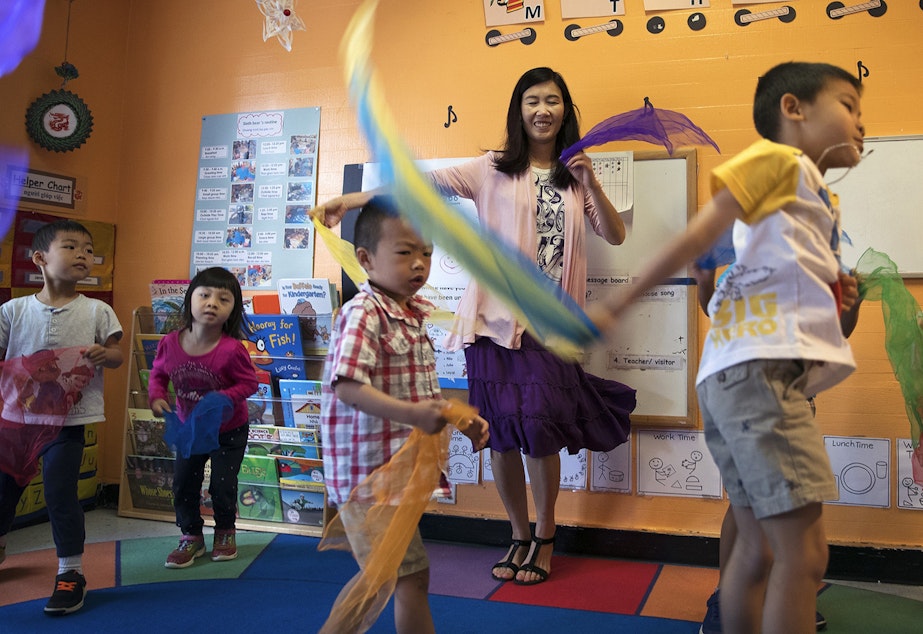Will Seattle voters back $638M education levy?

Seattle voters are facing the second-largest property tax levy in the city's history: $638 million for Proposition 1.
It would fund programs from preschool all the way through community college, with the goal of eliminating the achievement gap in Seattle Public Schools.
Joni Balter, host of Civic Cocktail on the Seattle Channel, and Q13 News political analyst C.R. Douglas looked at the levy with KUOW’s Angela King.
King: This levy is more than twice the size of the existing Families and Education Levy. Why so much money?
Balter: It's so big because it's a Christmas tree. It's a package of three things really that are wrapped together and presented as one. You have the usual Families and Education Levy, which Seattle voters have approved every seven years since 1990. It is added to the very popular preschool levy, which began about four years ago, and now it’s added to Mayor Jenny Durkan’s campaign pledge of college access for all.
Douglas: The real sizzle is at each end of the age spectrum, the pre-K kids on the one hand and the community college students on the other. There have been small pilot efforts in each of those areas, and this levy would scale them both to full comprehensive programs, so you would get pretty close to universal pre-K and you get pretty close to universal free community college tuition.
Now the larger money piece is pre-K: Over half the levy goes to that, which is very different from past efforts, which have focused almost exclusively on K-12. And I think that represents there's been a real shift in the science on this. It's now widely believed that the most important years are the pre-K years, and if you don't get those right, it's very hard to make up for that later.
Sponsored
King: What do we know about how these programs are doing so far?
Douglas: The core Families and Education Levy has been around for over 30 years and we still have a persistent achievement gap with low-income and minority kids. We still have a problem with graduation rates.
So the big bold promises of the past for this levy have not been fulfilled. There have been some areas of success, certainly. I think the fact that they are offering a pretty different package than past family and education measures suggests that they still have not found the magic bullet on what is a very hard social problem.
King: Is there opposition to this measure?
Balter: There is opposition. It's been a little low key. What I'm hearing is that they're doubling this levy in some places and haven't done the sufficient planning for it.
What bothers me most is the city of Seattle is on this jag to just keep doubling and tripling levies, because they know the voters are so willing to support them.
For anyone who thinks I'm being harsh, I offer you the Seattle Department of Transportation. Remember the Move Seattle levy? It was a tripling. And after a couple years into it, they come along and they say, “Oh sorry, we didn't really count right. We didn't really estimate right.” They are going a little too far, too fast
Sponsored
King: You said this levy continues to get the support of Seattle voters. Is this levy going to pass again?
Douglas: The odds are in its favor, for sure. I mean Seattle voters are very generous. They have supported this kind of thing in the past.
The only pause to that is that this year is different than almost any other. Recently the state legislature increased property taxes across the state, and in King County and Seattle they went up almost 20 percent. That is the largest hike in state history almost. So this big levy request comes on the heels of that big tax increase and voters could be feeling more pinch than usual.
Balter: It probably passes just because it's offering voters something they cannot resist, which is Seattle schoolchildren and better education. That's usually a winner.





